How two Cantonese opera veterans stopped ‘Emperor of Heaven’ from vanishing
- Yuen Siu-fai and Sun Kim-long spent two years preserving details to safeguard future of rarely performed show, The Imperial Emperor of Heaven Holding Court
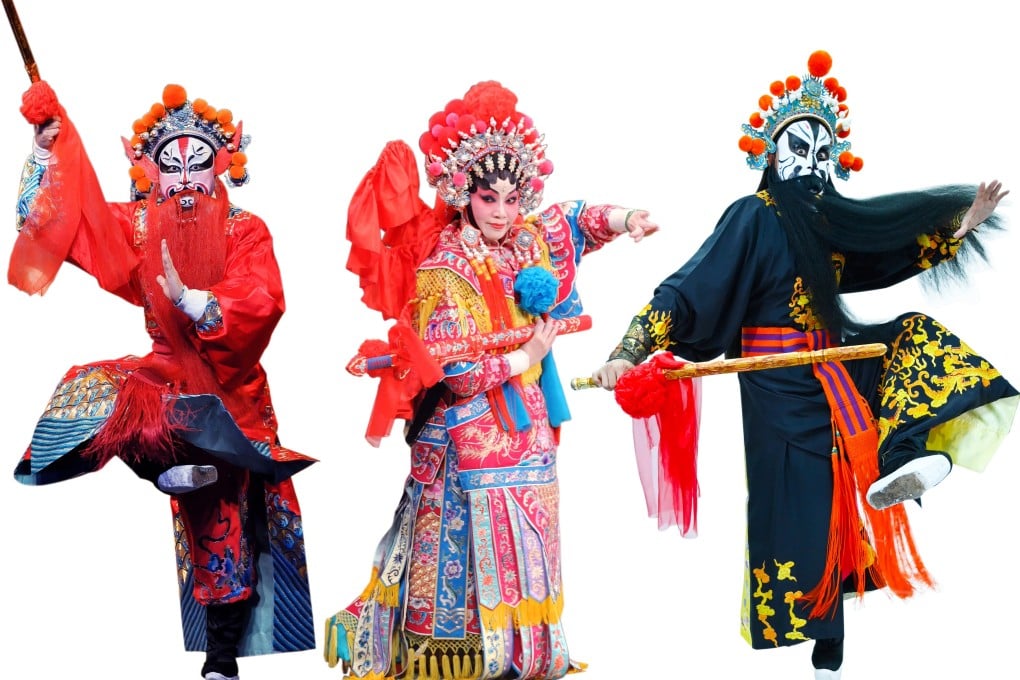
The Imperial Emperor of Heaven is one of the most well-known deities in Chinese mythology. He rules the heavenly court, leading an army of gods, goddesses and the heavenly troops to safeguard humanity and justice on Earth.
Stories about him have been widely read and inspired creative and artistic works through generations.
The elaborate rendition of this folklore performed as Cantonese opera – one of Chinese opera’s vibrant art forms featuring opera, drama, music and even acrobatics – only narrowly avoided becoming lost forever nearly a decade ago.
A lot of experienced Cantonese opera performers and musicians have already died. So this needs to be done [to help preserve the art form] before it’s too late
Named The Imperial Emperor of Heaven Holding Court, the show is one of the most spectacular performances in the world of Cantonese opera, which is known for its kaleidoscopic costumes, distinctive falsetto singing and intricate gestures rich with symbolism.
Popular with audiences in southern China and parts of Southeast Asia, Cantonese opera was included as part of Unesco’s Representative List of the Intangible Cultural Heritage of Humanity in 2009.
Veteran Cantonese opera artists Yuen Siu-fai and Sun Kim-long spent about two years painstakingly researching and preserving details about The Imperial Emperor of Heaven Holding Court – including recording the recollections of many other great artists – to ensure fans of this performing art form can continue to enjoy this title in future.
The opera is now set for another run, performed by The Chinese Artists Association of Hong Kong – aka Barwo, the oldest Cantonese opera organisation – at the Grand Theatre at Hong Kong Cultural Centre, in Tsim Sha Tsui, on November 8, 9 and 10.
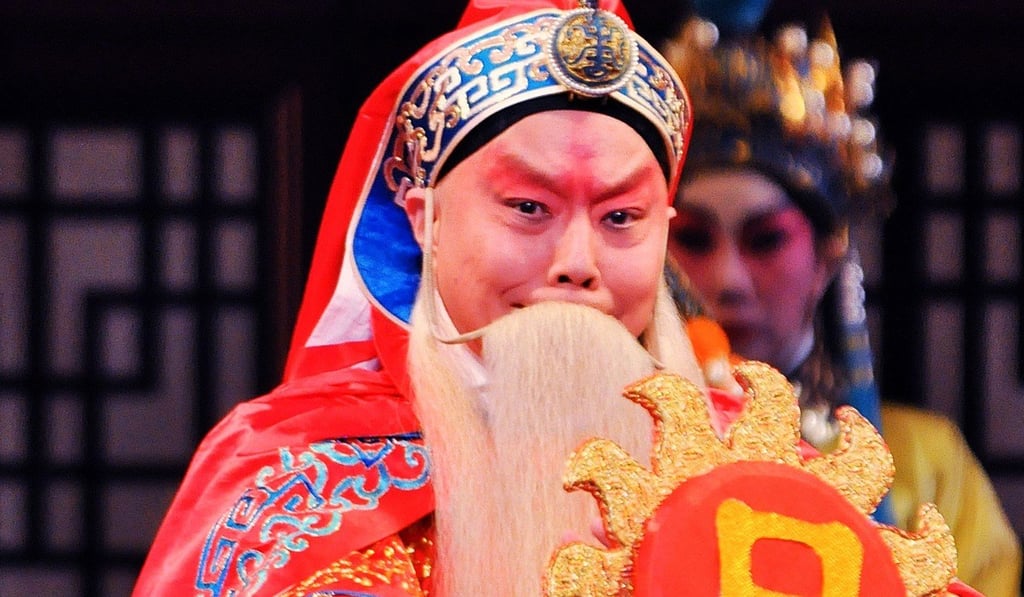
Yuen, who is also vice-chairman of the association, says the production, based on the century-old Cantonese opera tradition, is considered one of the routine plays – a curtain-raiser of a multi-part programme, particularly one with ritual performances of religious and festive significance.
Traditionally scheduled for the daytime on the opening day of a performance series, a piece chosen as a routine play is usually of historical importance and tends to retain Cantonese opera’s early musicality, official language and performance practices.
The Imperial Emperor of Heaven Holding Court tells the story of the Jade Emperor, the ruler of heaven in Chinese mythology.
It takes more than 100 performers to stage The Imperial Emperor of Heaven Holding Court. This kind of ensemble is very hard to put together nowadays
Also known as the Imperial Emperor of Heaven, he commands his celestial officials to investigate the good and evil deeds on Earth and report back to the court.
Although the opera has a long history, it does not get a regular run in theatres, Yuen says.
In terms of Chinese opera techniques, he says the play is not too challenging for the performers, except for the Peach Blossom Lady, one of the main female characters, or dan.
However, the fact that the opera requires a huge cast of 108 people is one of the drawbacks.
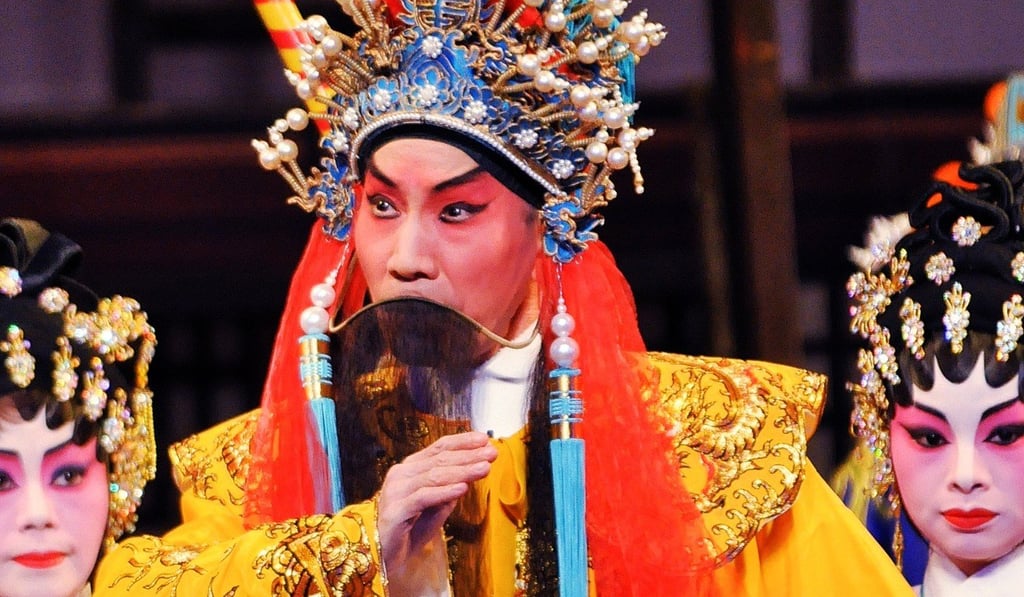
“It takes more than 100 performers to stage this performance,” Yuen says. “This kind of ensemble is very hard to put together nowadays because way the industry is run has evolved over time and has reached the stage where it is now unfriendly to performances such as this.”
Arranging the order of the appearance of all 108 performers, as well as their respective positions on stage, is a tremendous headache, he says. A lot of the precise details explaining how the show was originally performed were things that had almost vanished over the years.
Dong Shangde, a professor and scholar at Sun Yat-sen University in Guangzhou, who specialises in the study of Cantonese opera, says the simplification of the structure of Cantonese opera troupes may be one of the reasons that ensemble titles such as The Imperial Emperor of Heaven Holding Court have struggled to survive.
Originally, there were 10 classifications of roles and characters in Cantonese opera, known as hong dong in Cantonese or hangdang in Mandarin.
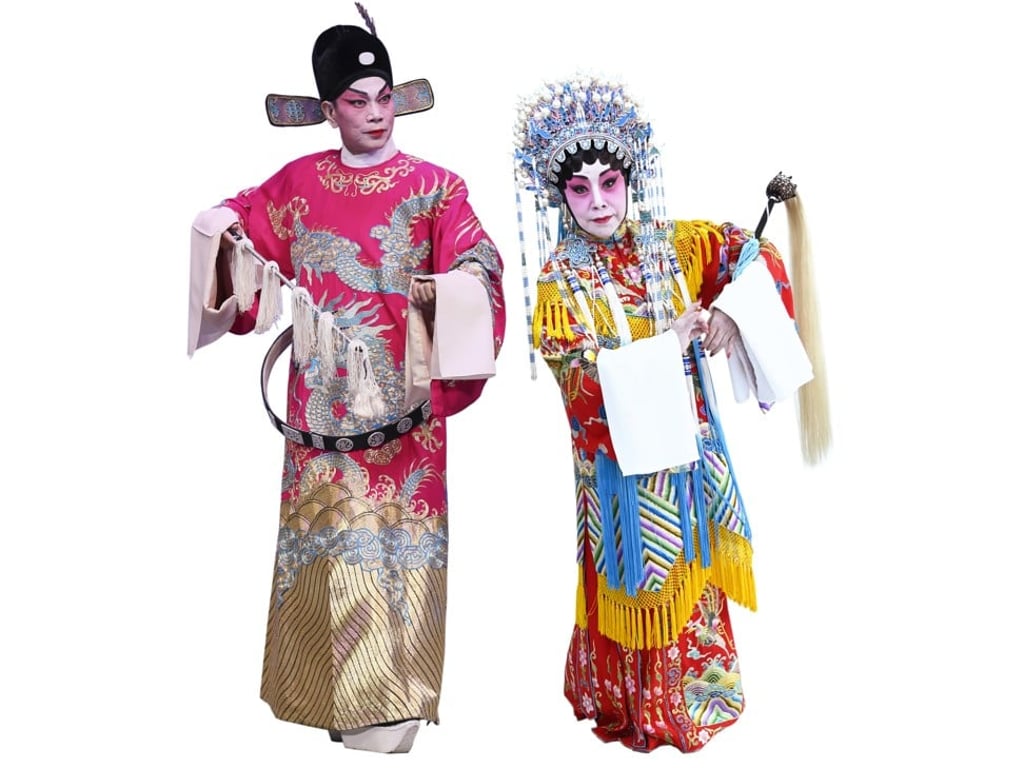
However, after the establishment of a standardised organisational system in the 1930s, in which only six principal performers are required, troupes continued to downsize so it has been very difficult to perform a show requiring 108 performers.
Yuen says there are also economic reasons for the decline of such ensemble performances in Hong Kong.
It is simply too costly to stage routine plays in addition to main titles at theatres in the city, he says. “The hours [it would take to perform] are too long and theatres don’t let you do that,” he says.
The late legendary actor Kwan Tak-hing, former chairman of the association, made an effort to restore the opera in the late 1950s, but it was not until a decade ago that The Imperial Emperor of Heaven Holding Court returned to the theatre, thanks to the endeavours of Yuen and Sun.
Cantonese opera practitioners hope more resources can be deployed to the restoration and conservation of these cultural assets because of Unesco’s acknowledgement of the art form’s importance
Their research led them to Guangdong and Malaysia and saw them uncover a great deal of information about past performances of the opera by talking to many experienced past masters, including Choi Yim-heung, who is dubbed the grand dame of Cantonese opera in Malaysia.
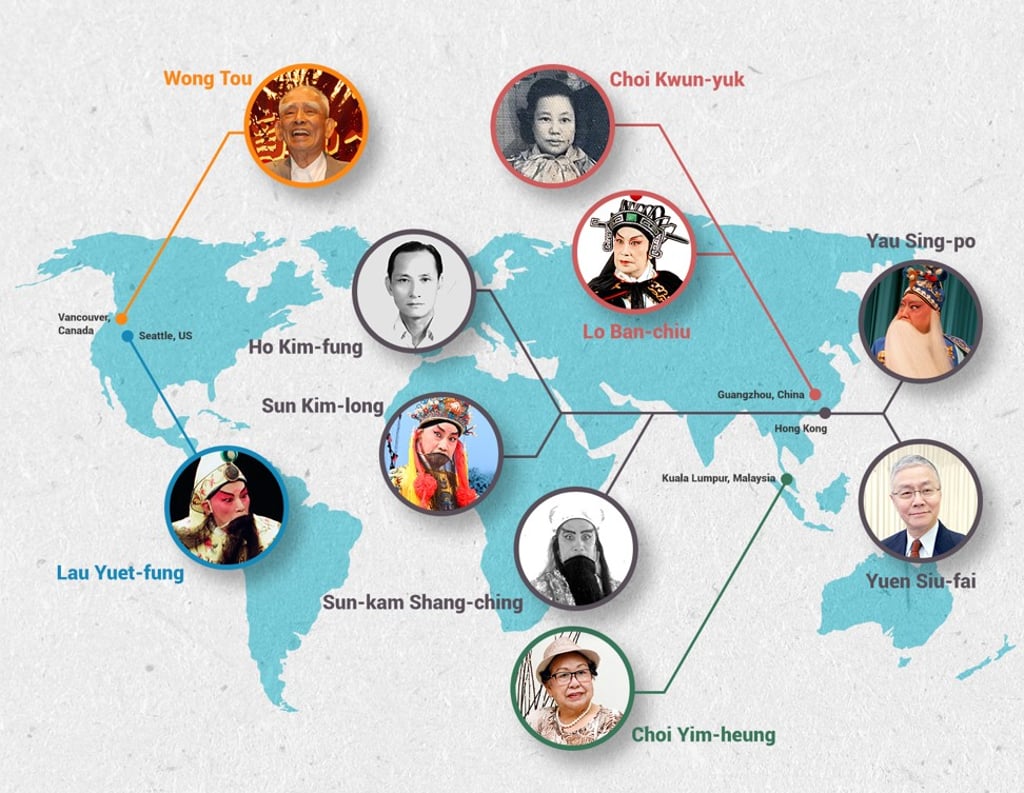
Yuen says that although a written script of the opera still existed from the 1950s when Kwan staged the show, it lacked the important specificity of stage conventions and arrangements. This kind of information could be recovered only from oral history.
The Imperial Emperor of Heaven Holding Court is not the only routine play that has been at risk of disappearing.
Eight Immortals Bestowing Longevity, Blessing by the God of Fortune and A Fairy Returns Her Son to the Mortal Father are among others that have been preserved, even if some of the performance conventions are no longer practised.
Yuen says sadly another play, The Victory of Five Sons, has been lost completely so it can no longer be revived.
Some Cantonese opera practitioners hope that apart from investment in training and performances, more resources can be deployed to the restoration and conservation of these cultural assets because of Unesco’s acknowledgement of the art form’s importance.
Technology could be used to help keep the tradition of Cantonese opera alive. For example, the Research Centre for Transmission of Cantonese Opera under the Education University of Hong Kong in Tai Po, has begun applying virtual reality to the teaching, promotion and research of Cantonese opera.
However, more needs to be done – and urgently, Yuen says.
“A lot of experienced performers and musicians have already died” he says. “So this needs to be done before it’s too late.”